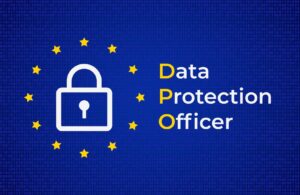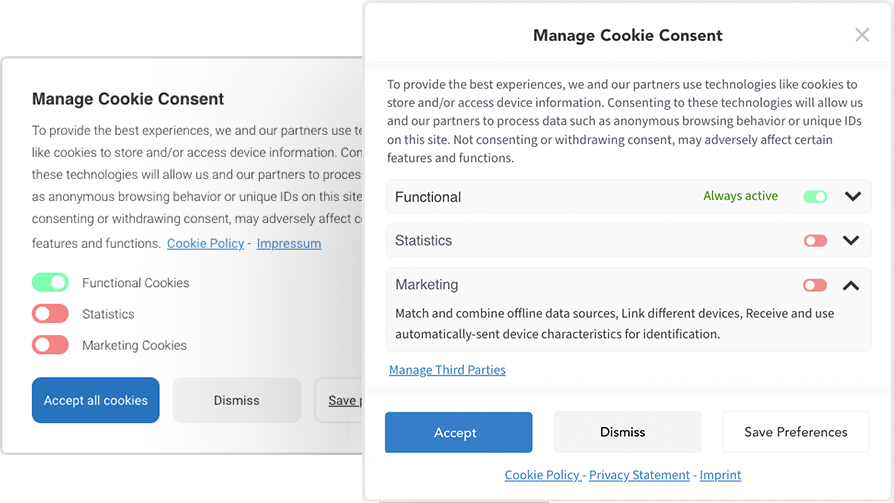
GDPR: Data Protection Officer
Section 4 of the GDPR outlines the requirement for applicable firms to appoint a data protection officer (DPO). All emphasis added unless otherwise stated. When
Coming into force on 25th May 2018, the General Data Protection Regulation (GDPR) is the most important change in EU data privacy regulation in the past decades.
The regulation fundamentally reshapes the way in which data is handled across every sector, from healthcare to banking, public sector and private companies.
GDPR applies to all companies that store or process personal information about EU citizens even if they don’t have a business presence within the EU.
Any organization that sells goods, offers services or monitors the online behavior of EU residents, must comply with GDPR requirements. And fines for non compliance are as high as €20 million euros or 4% of a company’s total global revenue, whichever is larger.
The General Data Protection Regulation (GDPR) is not only a legal challenge. Above all, GDPR compliance is a cultural and technical challenge.
The obligations require maximum data transparency and data integration as well as a technically highly efficient execution process.
We will scan your website extensively for the following:
Then we create a Data Access Form, where users will be able to request:
We will configure the Cookies Consent functionality:
With your guidelines, we will redact:
GDPR data leak: if your company had a security incident and personal data has been exposed, you might need to inform both the users and authorities:

Please note, we only work with WordPress sites. By submitting this form, you accept our privacy policy. We do not provide legal council, you should always consult with an attorney.

EC’s guideline with several steps to help your business comply with the GDPR implementation.
The GDPR became enforceable starting 25 May, 2018.
Yes. The GDPR applies to firms that offer goods or services to EU residents irrespective of if payment is exchanged.
Yes. If you offer your goods or services to any EU residents, then you must comply with GDPR. Learn more here.
That depends on if the output of said manual data processing forms or are intended to form part of a filing system, defined by Article 4(6) as “any structured set of personal data which are accessible according to specific criteria, whether centralised, decentralised or dispersed on a functional or geographical basis”. In plain words, if the manual data processing contributes toward a database, then yes, you must comply. If said processing is one-off and does not enter a structured and accessible database, then the GDPR may not apply.
Yes. First, the GDPR will go into effect before the 2-year leave deadline of Brexit (April 2019). Barring new legislation, UK firms must comply with the GDPR until then. Karen Bradley, the Secretary of State for Culture, Media, and Sport, has affirmed in October 2016 post referendum that “We will be members of the EU in 2018 and therefore it would be expected and quite normal for us to opt into the GDPR and then look later at how best we might be able to help British business with data protection while maintaining high levels of protection for members of the public.” Second, even after Brexit concludes, UK firms that offer goods or services to EU residents still need to comply.
You may be fined for up to €20mm or 4% of your worldwide turnover (revenue), whichever is greater. You may also be subject to lawsuits by affected data subjects. Learn more here.
The GDPR categorizes a broad swath of data, such as name, email, location, IP address, and online behavior as personal data. Learn more here.
In general, consent needs to be explicit, opt-in, and freely given. This means popular opt-out based consent of today will no longer be acceptable. Learn more here.
You must appoint a DPO if you represent public authorities or organizations that process large scale monitoring or processing of sensitive personal data. Learn more here.

Section 4 of the GDPR outlines the requirement for applicable firms to appoint a data protection officer (DPO). All emphasis added unless otherwise stated. When

Most recent GDPR news stories highlighted the new 72-hour breach notification requirement and the potential €20,000,000 fines. Yes, those are provocative highlights that generate clicks
A ransomware attack targeting organizations, businesses and hospitals is spreading across about 100 countries. Learn about it to prevent it in the future.

Expanded territorial scope The GDPR represents a significantly increased territorial reach over its Data Protection Directive predecessor. Article 3 of the GDPR outlines that (all

Administrative fines The GDPR imposes stiff fines on data controllers and processors for non-compliance. Determination Fines are administered by individual member state supervisory authorities (83.1).

Article 4(1) defines “personal data” as follows (all emphasis added unless otherwise stated): ‘personal data’ means any information relating to an identified or identifiable natural person (‘data
Metric International, Inc. is a multilingual global services agency specialized in digital presence through: Technology, Branding and Marketing solutions.